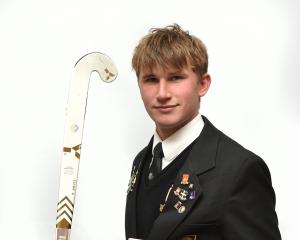
For the nearly 70 million people with dementia or movement disorders such as Parkinson’s disease, it can be difficult to get a proper diagnosis until symptoms are relatively advanced. Former Dunedin man Tim Chisholm is determined to address this.
As part of his PhD research at the University of Cambridge, Chisholm developed tests that can identify molecules in the blood that are characteristic of Parkinson’s.
Now a research fellow at the university, he hopes to create a simple blood test that can diagnose Parkinson’s and some forms of dementia.
Although Alzheimer’s is not his current focus, it might also eventually be able to be diagnosed this way.
At present, diseases such as Parkinson’s are primarily diagnosed based on symptoms, he says.
‘‘There aren’t many good medical scans or tests that can diagnose them before symptoms develop, or distinguish diseases which might look similar early on but progress very differently.
‘‘This makes it hard for patients to get the right treatment... let alone get some certainty about what the future will look like for them and their families.’’
‘‘With a good diagnostic test, we can make sure that patients with Parkinson’s get the care they need, and help pharmaceutical companies develop treatments that could slow [it’s] progression.’’
A blood test is also relatively simple compared to medical imaging methods such as MRI ‘‘and this means we can hopefully help a larger number of people ...’’
To get the science out of university and into hospitals more quickly, Chisholm plans to create a company.
The 27-year-old says he enjoys chemistry because it involves both a lot of hands-on work in the lab and a lot of deep thought.
‘‘It’s also a pretty broad science and its uses span healthcare to electronics to paints to food. Everything around us is made of chemicals, so you can really do whatever you want with it.’’
After doing his science degree and master’s at the University of Sydney, the former Otago Boys’ High School pupil was awarded a Prince of Wales Scholarship worth about NZ$150,000 to undertake his PhD at Cambridge.
In 2013, the Otago Daily Times Class Act Award recipient said when he ran out of stuff to learn, he’d find new things that hadn’t been discovered or put into a theory before. He also reported that he was studying in the ‘‘most undisciplined, irreverent and original manner possible’’.
‘‘I think I meant I was following my nose and studying what interested me ... trying to do it my way and figuring out what worked for me,’’ he says, adding that he still follows his intuition a lot.
‘‘It’s not uncommon [for me] to spend a day reading up on some topic largely unrelated to my current work, then to drop it and move on.’’
‘‘But everything’s ultimately connected, and some of the best ‘aha’ moments I’ve had come from entirely unexpected places, such as those day-long reading binges.’’












